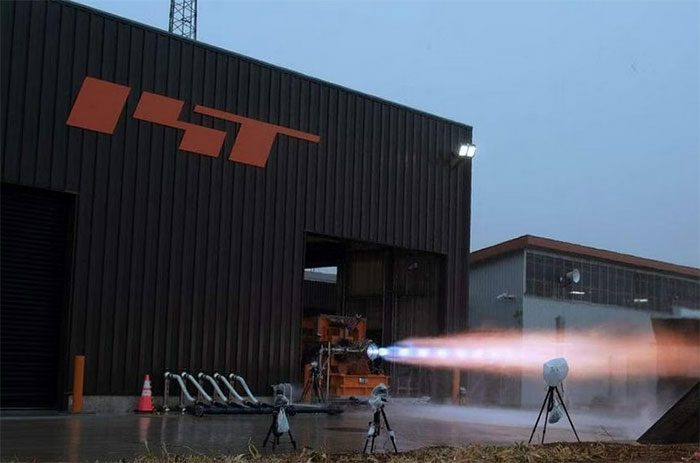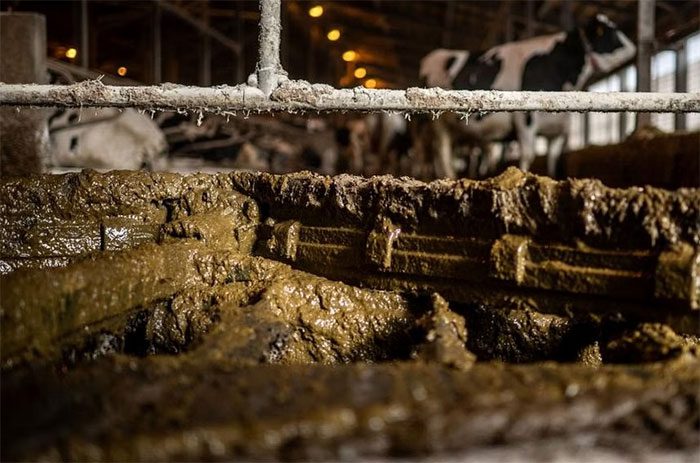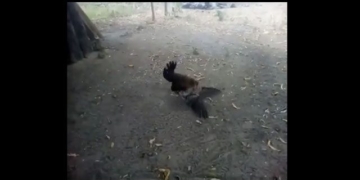The Japanese space industry opened a new chapter full of potential on December 7 when a startup tested a prototype rocket engine powered by fuel derived from… cow manure.
According to AFP (France), the experiment showed that the engine produced a blue-orange flame reaching 10 to 15 meters high for about 10 seconds in the rural town of Taiki, Hokkaido.

The experiment was conducted on December 7. (Photo: AFP).
According to the CEO of the startup named Interstellar Technologies, Mr. Takahiro Inagawa, liquid biomethane required to create rocket fuel is entirely produced from gas derived from cow manure sourced from two local dairy farms.
Inagawa told AFP: “We are doing this not only because it is good for the environment but also because it can be produced locally, is cost-effective, and serves as a high-performance and pure fuel.”
He affirmed that Interstellar Technologies is the first private enterprise to do this and hopes the technology will be replicated globally.
Interstellar Technologies has collaborated with the industrial gas company Air Water. Local farmers have equipment on their farms to process cow manure into biogas, which Air Water collects and converts into rocket fuel.
Biogas derived from cow manure has been used as fuel worldwide, including powering buses in the city of Indore, India. It helps reduce the enormous carbon footprint of the agricultural sector, which Greenpeace claims is responsible for 14% of global greenhouse gas emissions.

Liquid biomethane is produced entirely from gas from cow manure at local dairy farms. (Photo: AFP).
Burning biogas also emits greenhouse gases, while waste from farm animals pollutes water and soil. Local dairy farms and other facilities are using biomethane from Air Water to heat homes and fuel trucks and ships in pilot programs.
Among the local farmers participating in the pilot program is Mr. Eiji Mizushita (58 years old). Mr. Mizushita raises about 900 dairy cows, producing over 40 tons of manure daily. His farm has an industrial system to automatically collect cow manure, ferment it, and transform it into biogas, fertilizer, and recycled materials used as bedding for livestock. Selling biogas only adds about 1% to Mizushita’s income, but he believes the effort is worthwhile.
He expressed: “I am very pleased that our cow waste can be used to make rockets fly. We need to handle and utilize cow manure properly. I also think that the government and society should take a more serious view of the importance of natural renewable energy and encourage the production of this energy.”
In a related development, the National Space Policy Committee under the Japanese Cabinet Office has decided to postpone the plan to launch a Mars probe until 2026, which is two years later than the original schedule. This decision came after Japan’s failure in the test launch of the H3 rocket in March this year. The H3 rocket was developed for regular commercial launches with improved cost-effectiveness and reliability. It is considered a potential competitor to SpaceX’s Falcon 9 rocket.



















































